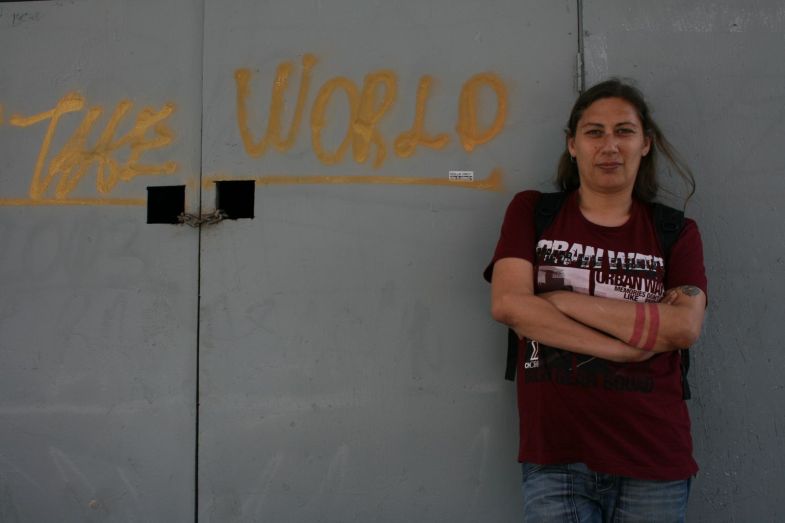Source: Red Umbrella Sexual Health and Human Rights Association, “17 Aralık Seks İşçilerine Yönelik Şiddetle Mücadele Günü: “Seks İşçisiyim Diye Beni Öldüremezsin”,” (“December 17, Day to End Violence Against Sex Workers: “You Cannot Kill Me for Being a Sex Worker”,”) Başka Haber, http://www.baskahaber.org/2013/12/17-aralk-seks-iscilerine-yonelik.html
Today is December 17, the Day to End Violence Against Sex Workers. Female, male, and trans sex workers are trying to continue their lives amidst violence in Turkey and across the world. Labeling, othering, social exclusion, discrimination, violence, and murder are the daily experiences for sex workers. Sex workers are imprisoned in the cycles of threats, sexual assault, extortion, physical assaults, and murder. Society does not oppose this situation and officials do not take preventative measures. Sex workers are left to die.
On the streets, sex workers are exposed to ill-treatment and torture by the police. They are pushed further into the streets and the center of violence through arbitrary fines. Police send gangs to attack sex workers.
Sex workers’ houses are raided and sealed. While being pushed out to work on the streets, sex workers experience all types of violence from customers, police, and gangs.
“Prostitution raids” are conducted daily, sex workers are revealed to the media, and forced into mandatory HIV testing. They are also lynched through lawsuits filed against them.
Every year, many sex workers are killed by their customers, gangs or their partners. The perpetrators are either not caught or if they are, their penalties are reduced due to various excuses or they are released. In this way, the State permits the killing of sex workers.
Brothels are closed and, with the closures, the workplaces of sex workers are taken away from them. Therefore, sex workers are forced to work on the streets in extremely unsafe and risky places without any protection. They become the victims of economic violence, by being pushed into insecurity and poverty.
Laws and policies that turn sex workers into criminals portray sex workers as “dishonorable,” “immoral,” “low,” and “against social values.” With this, social hatred towards sex workers multiplies.
Written and visual media deem sex work to be negative and present biased news based on information fed to them by the police. In this way, they victimize sex workers once more.
Sex workers from the elderly, HIV+, homeless, poor, disabled, and other vulnerable groups are not only subjected to all these rights violations but they also experience violence due to their special circumstances.
As long as violence against sex workers is not prevented, violence and hate crimes towards women will not cease. As long as the multitude of violence against sex workers does not end, the contraction of sexually transmitted diseases will continue to increase. As long as the government ignores the violence against sex workers, murders will not end and social peace will not be established.
The government must halt the closure of brothels; stop arbitrary fines using the Law of Misdemeanors; thoroughly investigate the ill-treatment and torture of sex workers by the police and punish the perpetrators; end penalty reductions for the perpetrators of murder and carry out effective investigations; cease “prostitution raids” against sex workers, which turn into a practice of lynching through the claim of ending prostitution; recognize sex work as a profession and eradicate all humiliating and discriminatory treatment against sex workers.
The physical, psychological, sexual, and economic violence against sex workers must end. The rights of sex workers are human rights.
Share this:
-
Click to print (Opens in new window)
-
Click to email this to a friend (Opens in new window)
-
Click to share on Facebook (Opens in new window)
-
Click to share on Pinterest (Opens in new window)
-
Click to share on Tumblr (Opens in new window)
-
Click to share on Reddit (Opens in new window)
-
Click to share on Pocket (Opens in new window)
-
Like this:
Like Loading...
